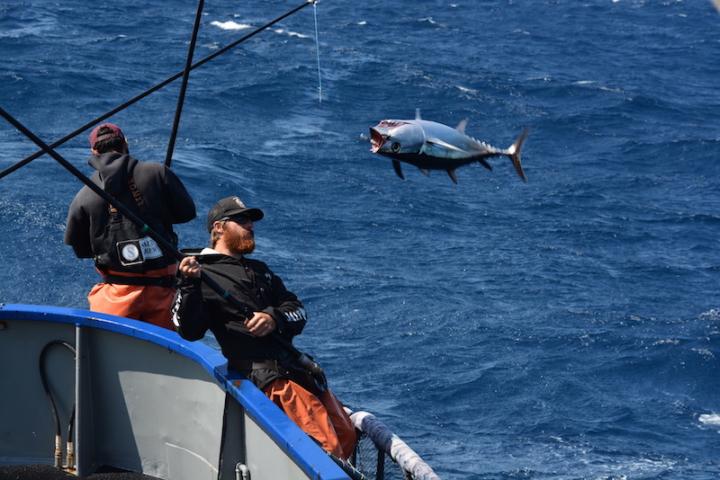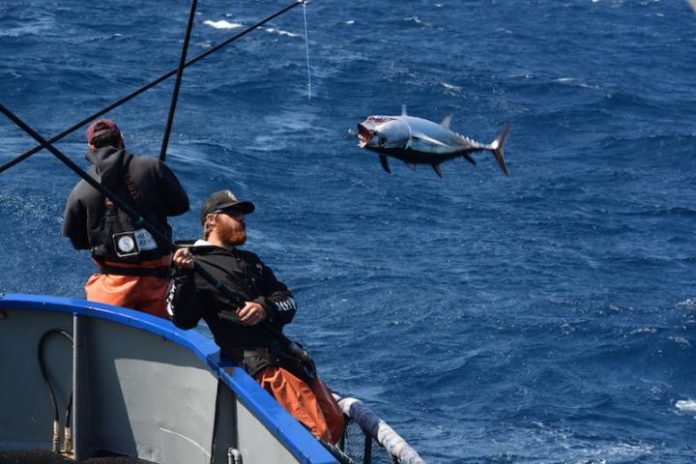
Photo: An analysis published in Fish and Fisheries notes that marine fisheries are increasingly exposed to external drivers of social and ecological change, and recent changes have had different impacts upon…
view more
Credit Image: American Albacore Fishing Association
An analysis published in Fish and Fisheries notes that marine fisheries are increasingly exposed to external drivers of social and ecological change, and recent changes have had different impacts upon the livelihood strategies favored by fishermen based on the size of their boats.
The analysis describes changes among Pacific Northwest fishermen over 35+ years, with a focus on the albacore troll and pole-and-line fishery. In describing different trajectories associated with the albacore fishery, one of the U.S. West Coast’s last open access fisheries, the authors highlight the diverse strategies used to sustain fishing livelihoods in the modern era. They argue that alternative approaches to management and licensing may be needed to maintain the viability of small-scale fishing operations worldwide.
“While resource managers have traditionally focused on maximizing economic returns one species at a time, new approaches that prioritize diversity and flexibility may be required to help coastal communities navigate the uncertainty associated with climate change and the globalization of seafood markets,” said lead author Timothy H. Frawley, PhD, of NOAA Southwest Fisheries Science Center and the University of California Santa Cruz.
###
TDnews (tunisiesoir.com)















